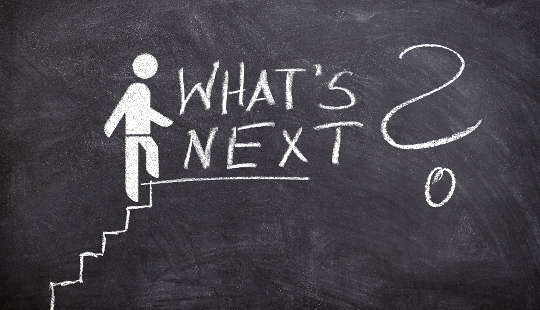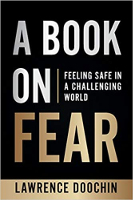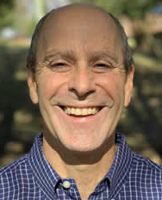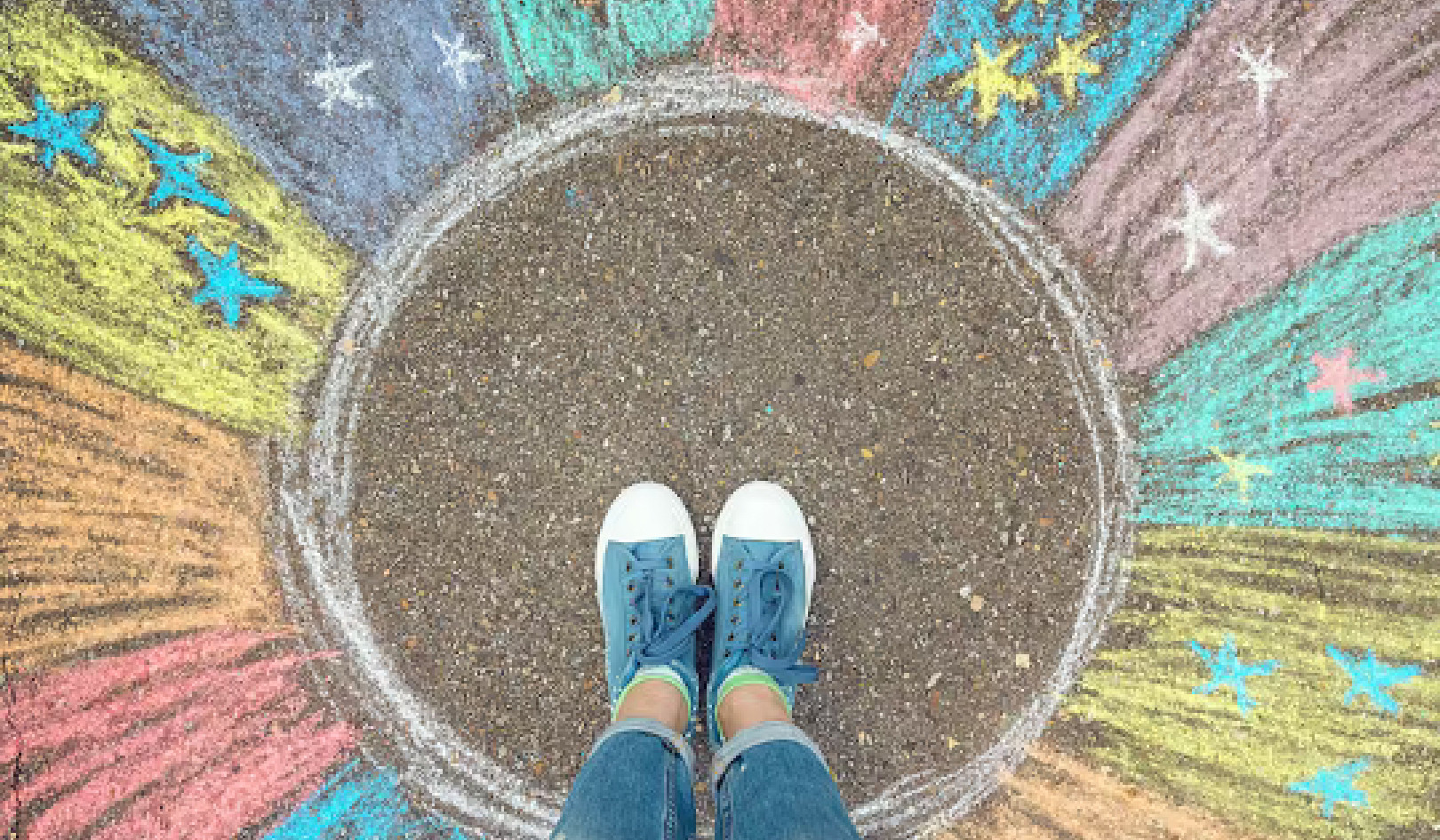
Image by Gerd Altmann
When we are taught that we should have something or achieve a certain thing and we aren't yet there, this will automatically engender fear and anxiety in us until we believe we reach these goals.
We have been told to strive for the American dream, assured that this is the key to happiness. The American dream includes accumulation of a large amount of wealth and status, a respected career, and well-educated children. Many of us achieve the American dream but then discover that it isn't enough, because "enough" can never be defined. So we strive to add more, accumulating more than we could possibly need.
When we strive for something false, we can never reach the destination. We live our life as “when.” I will be happy when I have this amount of money, when I am VP of the company, when I have my soulmate. The Dalai Lama said, “When you are discontent, you always want more, more, more. Your desire can never be satisfied. But when you practice contentment, you can say to yourself, ‘Oh yes — I already have everything that I really need.’”
Pervasive Accumulation-Happiness Myth
There is a pervasive accumulation-happiness myth. Happiness comes not from what we possess, but from doing something we love, being of service, being connected to a deeper and higher part of us, and being connected to others as in a community which is bound by something common.
The rates of suicide, depression, and loneliness are significantly higher in developed countries versus the developing ones. In most developing countries, extended families have little wealth (thus their money goes to essentials), but they still live together and there are rituals and ceremonies which bind together those in the larger community. Out of necessity, they have learned to be of service and help each other.
Benjamin Franklin told us, “He that is of the opinion money will do everything may well be suspected of doing everything for money.” Placing money as our god above everything else engenders fear as we have moved away from our true self. It can also lead to a lowering of integrity as we consider any means to reach our goals.
This accumulation-happiness myth, which many of us hold strongly regarding the economy, is fed by a false belief that everything should increase without having periods of contraction. We are told we should continually produce more so that we can consume more, and this will make us happy. Professionally and personally, we feel our to-do list is endless and we will never get it done.
Our self-worth is tied to constant achievement, and this keeps us in a perpetual state of anxiety and fear when we can’t get it all done. We are like the gerbil on the exercise wheel, going on and on without knowing or reaching a destination.
Bigger and Better?
This collective belief, especially in Western society, that everything should continually get bigger and that we should conquer nature comes from a collective hubris that has its roots in theology and the concept of manifest destiny. It also comes from a fear of what can happen when contraction occurs — the wheel slows down and we might fall off. This relates to our unwillingness to be still and look inside ourselves. But as evidenced in nature, contraction is a normal, healthy, and necessary part of the cycle of life.
What if we changed our definition of success to how kind we are, how much light we put in the world, how emotionally healthy our children are, our overall level of joy, or how fulfilled we are in whatever we do to earn an income? These are internal measures of success that an individual can define and control for themselves to a great extent, as opposed to the external measures that we are told are so important. We would not be in excessive fear if these were our measures of success.
Herd Mentality
Because we were educated in a school system that instilled in us certain expectations and beliefs, most of us have adopted society’s messages about success. We are also inundated from birth with marketing that has taught us to look outside of ourselves for success and happiness. Since everyone else is striving for this, it’s natural to believe this herd mentality must be the right way. The false belief we hold is that we are not worthy or a success unless we have achieved all of these things, which leads to fear.
Herd mentality has been greatly fed by the fear used in advertising, as this has become the primary tool for marketing products and services. Fear of falling behind is encapsulated in the saying we are not keeping up with the Joneses. We fear not being happy, fear ill health, fear not getting what we rightly deserve. We also fear we won’t belong. These are just a few of the tactics of current-day marketing. One needs only to watch commercials or look at the billboards in any major city to see the state of our society and how fear is utilized.
Essential or Nonessential?
The term “nonessential” has been used extensively with the coronavirus crisis. How many of these products and services that we use as a society can be deemed as essential? Do they solely exist to make money for the company offering them, or do they help the world in some way?
What if we took all of these resources, skills, and creativity and applied it to products and services that would benefit everyone? Might each of us be much more joyful if we were applying our gifts in something where they could be used for a much higher purpose?
MAIN TAKEAWAY
The expectations we have placed upon ourselves from living in society are misleading and create a lot of fear within us.
QUESTION
If you are striving for a certain level of wealth or success, what is that level? When does it become enough?
Copyright 2020. All Rights Reserved.
Publisher : One-Hearted Publishing.
Article Source:
A Book on Fear
A Book On Fear: Feeling Safe In A Challenging World
by Lawrence Doochin
 Even if everyone around us is in fear, this doesn't have to be our personal experience. We are meant to live in joy, not in fear. By taking us on a treetop journey through quantum physics, psychology, philosophy, spirituality, and more, A Book On Fear gives us tools and awareness to see where our fear comes from. When we see how our belief systems were created, how they limit us, and what we have become attached to that creates fear, we will come to know ourselves at a deeper level. Then we can make different choices to transform our fears. The end of each chapter includes a suggested simple exercise that can be done quickly but that will shift the reader into an immediate higher state of awareness about that chapter’s topic.
Even if everyone around us is in fear, this doesn't have to be our personal experience. We are meant to live in joy, not in fear. By taking us on a treetop journey through quantum physics, psychology, philosophy, spirituality, and more, A Book On Fear gives us tools and awareness to see where our fear comes from. When we see how our belief systems were created, how they limit us, and what we have become attached to that creates fear, we will come to know ourselves at a deeper level. Then we can make different choices to transform our fears. The end of each chapter includes a suggested simple exercise that can be done quickly but that will shift the reader into an immediate higher state of awareness about that chapter’s topic.
For more info and/or to order this book, click here.
More books by this Author.
About the Author
 Lawrence Doochin is an author, entrepreneur, and devoted husband and father. A survivor of harrowing childhood sexual abuse, he traveled a long journey of emotional and spiritual healing and developed an in-depth understanding of how our beliefs create our reality. In the business world, he has worked for, or been associated with, enterprises from small startups to multinational corporations. He is the cofounder of HUSO sound therapy, which delivers powerful healing benefits to individual and professionals worldwide. In everything Lawrence does, he strives to serve a higher good.
Lawrence Doochin is an author, entrepreneur, and devoted husband and father. A survivor of harrowing childhood sexual abuse, he traveled a long journey of emotional and spiritual healing and developed an in-depth understanding of how our beliefs create our reality. In the business world, he has worked for, or been associated with, enterprises from small startups to multinational corporations. He is the cofounder of HUSO sound therapy, which delivers powerful healing benefits to individual and professionals worldwide. In everything Lawrence does, he strives to serve a higher good.
He is the author of: A Book on Fear: Feeling Safe in a Challenging World. Learn more at LawrenceDoochin.com.




























